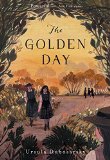Summary | Excerpt | Reading Guide | Reviews | Beyond the book | Read-Alikes | Genres & Themes | Author Bio

The two best things about Jack Gantos's grotesque, tragicomic, and nostalgic Dead End in Norvelt are its lively young narrator, Jack Gantos, and Norvelt, his town - a New Deal homestead community on the skids in Pennsylvania (see sidebar). The summer of 1962 filtered through Jack's psyche (and registered by his emotional-barometer/lie-detector bleeding nose) is sad, funny, and unforgettable.
Grounded for the summer, Jack's adventure begins when his mother "loans" him to Miss Volker, an elderly neighbor in need. Miss Volker's arthritic hands no longer permit her to type the obituaries she writes for the Norvelt News: "When Mrs. Roosevelt hired me to be the chief nurse and medical examiner of this town I was given a typewriter so I could keep health records on the original two hundred and fifty families. Now it's my closing tribute to Mrs. Roosevelt that I write their final health report - which, in this case, would be their obituary..."
A quick learner and an avid student of history, Jack becomes Miss Volker's friend, scribe, and protégé:
"You need to know the history of this town because if it dies out someone will have to be around to write the obit."
"How does a town die?" I asked.
"One old person at a time," she said deliberately.
This slapstick novel is full of death. Miss Volker has Jack, in his Grim Reaper Halloween costume, break into a woman's house to see if she is still among the living. (She politely asks "the Grim Reaper" to return in two weeks). Jack's best friend, whose father owns the town's funeral home, delights in clacking together a set of dentures he's lifted from a corpse. On a hunting trip, Jack hilariously prevents his father from shooting a deer he can't bear to see killed, but later a wounded doe staggers to Jack's house and dies. When a cement truck kills a Hell's Angel having a seizure ("Like tattooed roadkill only with a long black beard on one end and crushed black boots on the other..."), his gang sets Norvelt's houses on fire, burning an original homestead to the ground. And Jack gathers the dead mice Miss Volker poisons in her basement as, one after another, Norvelt's old women die. For me, these memento mori intensify Jack's innocent good nature and elevate Miss Volker to the status of doomed heroine (with Jack as her knight) in a battle against Time, Forgetfulness, and Oblivion.
Jack accompanies Miss Volker on her official, unsentimental visits to the Norvelt dead, and it is only when she dictates a death notice that she becomes emotional - even rhapsodic. Her obituaries transfigure death into something beautiful and important, the crowning event in a life of love, joy, idiosyncrasy, and work. The effort leaves Jack's fingers sore from typing and Miss Volker wrung dry and absolutely depleted. It is not easy to discharge this sacred responsibility, to honor her debt to Eleanor Roosevelt, and to rescue Norvelt history from the grave. And until his stint with Miss Volker, Jack's often-bleeding nose betrays his helplessness against the force of his emotions. But ultimately he finds his voice and his power.
Young readers will find Jack authentic and funny - especially his embarrassing nose. What will they make of the utopian community's history or the frequent references to Eleanor Roosevelt? I don't know. But Gantos's obit to Norvelt is too real and too interesting for that to matter much.
![]() This review was originally published in The BookBrowse Review in November 2011, and has been updated for the
May 2013 edition.
Click here to go to this issue.
This review was originally published in The BookBrowse Review in November 2011, and has been updated for the
May 2013 edition.
Click here to go to this issue.

If you liked Dead End in Norvelt, try these:

by Ursula Dubosarsky
Published 2015
When their teacher goes missing during an outing, eleven girls grapple with the aftermath in this haunting, exquisitely told psychological mystery.

by Vince Vawter
Published 2014
For fans of To Kill a Mockingbird, The King's Speech, and The Help. A boy who stutters comes-of-age in the segregated South, during the summer that changes his life.
Your guide toexceptional books
BookBrowse seeks out and recommends the best in contemporary fiction and nonfiction—books that not only engage and entertain but also deepen our understanding of ourselves and the world around us.